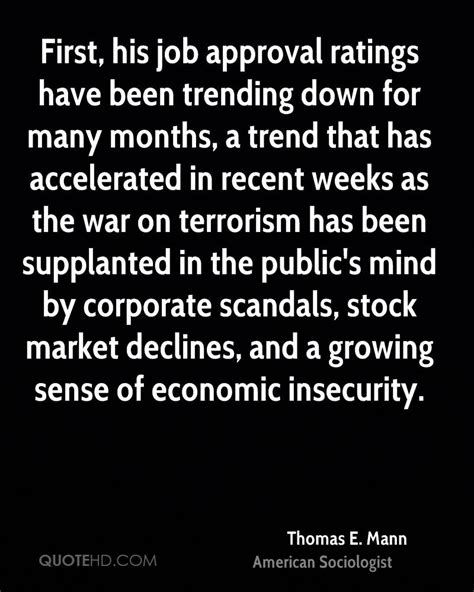A Quote by Robert Reich
By the mid-1950s, more than a third of all America workers in the private sector were unionized. And the unions demanded and received a fair slice of the American pie.
Related Quotes
Private sector unionization is down to practically seven percent. Meanwhile the public sector unions have kind of sustained themselves [even] under attack, but in the last few years, there's been a sharp [increase in the] attack on public sector unions, which Barack Obama has participated in, in fact. When you freeze salaries of federal workers, that's equivalent to taxing public sector people.
Just as members of American teachers unions often send their own children to private schools, so unionized workers at government-run hospitals in Britain have insurance that allows them to go to private hospitals. In both cases, those on the inside realize how bad these institutions are, regardless of what they say to those on the outside.
Indeed, the share of teachers in a union has fallen to less than half, driven in part by older, unionized teachers retiring, the rise of certain districts' reliance on charters and other private education options, and legal changes that have curtailed the ability of unions to bargain on behalf of workers.
It's just the banks who are the latest target of the American socialist left. There is a war on the entirety of the private sector. It is the private sector that employs most of you, that services most of you, that creates the economic prosperity that our nation has enjoyed - and there is a war on that private sector, and it's being waged from the Oval Office, and its foot soldiers are on Wall Street and in other cities around the country.



































